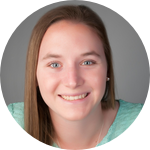About This Project
With increased revenue and financial compensation, it has become practical for athletes to compete until later in life. Major sporting events including older athletes have dominated the news coverage in recent years. Most older athletes make every effort to maintain performance. But declines in performance are inevitable due to aging. We believe a decline in exercise training that happens over years mediates the age-related decline in athletic performance. But this has not been answered.
Ask the Scientists
Join The DiscussionWhat is the context of this research?
One method of assessing physiological functional capacity (PFC) is to determine changes in peak performance with age in athletes; this is advantageous because confounding variables are absent and physiological aging is the only contributor. Studies have found PFC assessed by swimming performance declined linearly until the age of 70 followed by an exponential decline after. Authors’ concluded that habitual exercise plays a role in determining PFC and speculated the decline in performance may reflect the decrease in training volume. Data is now available from US Masters Swimming of swimmers' training volume that can be matched with their annual peak performance. This data will allow us to answer the question: as a swimmer ages how does their training volume impact performance?
What is the significance of this project?
The demographics of the aging population in the United States is dramatically changing causing an increased number of adults in the 65 and over age group. Physiological functional capacity (PFC) is the ability to perform the physical tasks of daily life and the ease with which these tasks can be completed. PFC declines with advancing age. Therefore a greater portion of the US population will face obstacles related to a reduced PFC in the approaching years. This study looks at the training and performance of masters athletes to be used as a way of assessing PFC in these aged athletes, who serve as models for “successful aging”.
What are the goals of the project?
We have already compiled data from the US Masters Swimming database on training volume and performance at national meets over the course of 2-6 years in masters swimmers. The first goal is to get the statistical analysis of the data completed using a Hierarchical Linear Model to predict the masters swimmers’ performance using effects of aging, training, and the interaction of aging and training. Then we will move towards writing the manuscript and having it peer-reviewed.
Budget
The US Masters Swimming is a national governing body for adult swimming. We obtained and compiled the database containing changes in swimming performance and swimming training volume for Masters swimmers during the last 6 years. Because the database contains over four thousand swimmers, the analyses turned out to be extremely complex. The statistical methods needed to analyze the data include a Hierarchical Linear Model that is beyond my ability and my lab’s expertise. Statistic experts have offered to help, yet it is costly. The money raised here will be used to cover the statistical analyses costs.
Endorsed by
Meet the Team
Stephanie Lapierre
Stephanie has been an active member of the Cardiovascular Aging Research Lab at the University of Texas at Austin for 8 months now and has experience in two other research settings. She was a trainee at Pennington Biomedical Research Center in the Inactivity Physiology Lab, as well as an integral part of the Dunn-Lewis Research Group at Merrimack College in Massachusetts, where she earned her BS in 2015. She is currently working towards a M.S. in exercise science and aspires to receive her doctoral degree. She enjoys teaching undergraduates and sharing her passion for exercise physiology.
Project Backers
- 0Backers
- 0%Funded
- $0Total Donations
- $0Average Donation

